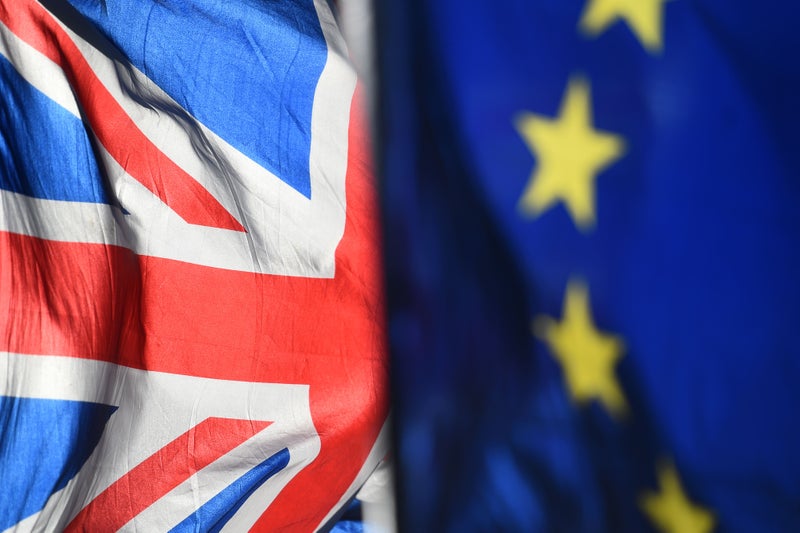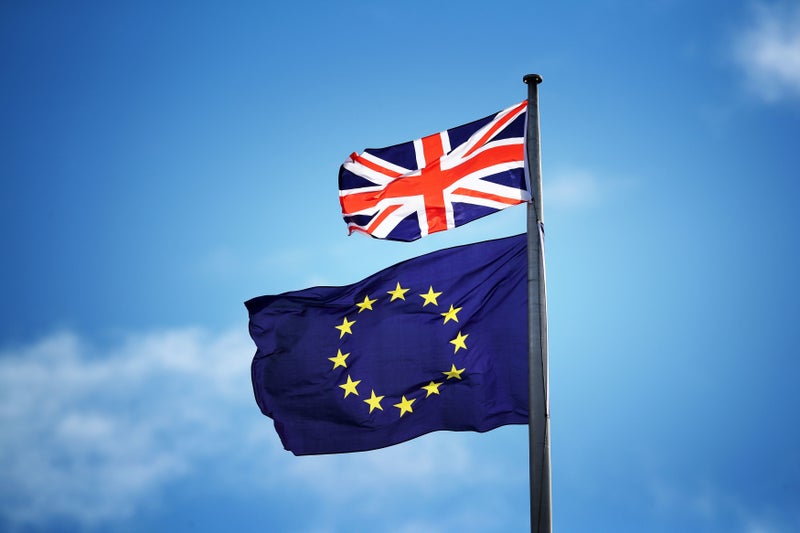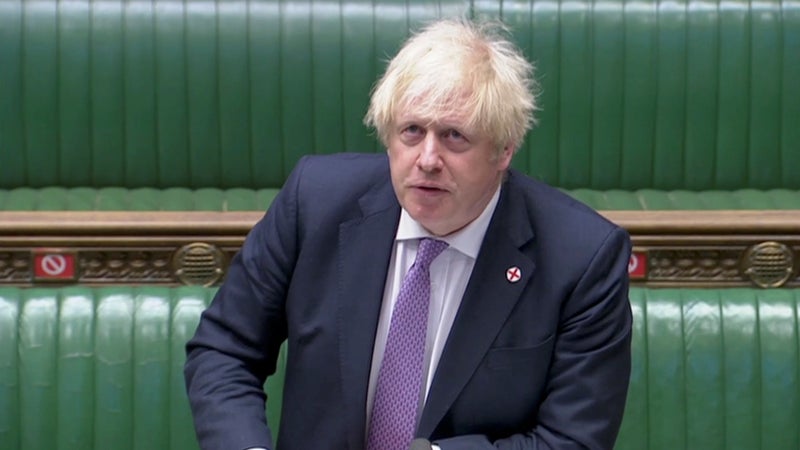Most people think leaving the EU was a mistake - but don't expect politicians to reopen the Brexit question
Most people think leaving the EU was a mistake - but don't expect politicians to reopen the Brexit question
Share:
This weekend marks five years since the UK finally managed to "take back control" and leave the European Union. The referendum vote to leave was on 23 June 2016. It took three and half years after that, of negotiations with Brussels, political and legal arguments at Westminster, and three British prime ministerial careers, before Boris Johnson delivered on his promise to "get Brexit done". Follow latest: Live politics updates.
The referendum result was close. 51.89% voted to leave, 48.11% to remain - which is generally rounded to 52/48. Within the overall UK decision, there were majorities in favour of leaving in England and Wales, and against in Scotland and Northern Ireland. Latest opinion polls consistently show that the public thinks Brexit was a mistake. For this year's fifth anniversary, YouGov asked: "In hindsight do you think Britain was right or wrong to leave the European Union?".
Can Love Island help Rachel Reeves?. Business secretary hints UK could join European trade area. Unionists attack government's decision not to activate Stormont brake. The result was "Wrong" 55% and "Right" 30%. A stunning three out of four of the 18 to 25-year-olds, who mostly did not have a chance to vote in the referendum, think leaving was a mistake. There is a softening of support on the Leave side, but party divisions are still stark. 60% of Conservative voters at the last election, and 80% of Reform UK supporters, still think it was the right decision, while 80% of both Labour and Liberal Democrat voters say it was wrong.
Dire warnings from Remainers that the economy would immediately go off a cliff did not materialise but the UK has not prospered since it left the EU. There are fewer Europeans in this country, but overall immigration has hit record-high levels in the years since Brexit. 'Slow puncture'. It is difficult to separate the consequences of Brexit from other economic shocks such as COVID, Ukraine war-related energy prices, and higher inflation.
However, most accept the view of the independent Office for Budget Responsibility that the long term hit to productivity will be around 4%. In The Brexit Files, a new report from the UK In A Changing Europe thinktank, Professor Jonathan Portes said: "Overall, economists' characterisation of Brexit as a 'slow puncture', rather than a car crash, has been vindicated.". All this means that the UK's relationship with Europe - our closest neighbours and largest trading partner - is very much a live issue for the country, in spite of the reluctance of battle-scarred politicians to talk about it.
Five years on, the UK still does not know where it is heading. Both Labour and the Conservatives, the UK's two parties of government, have drawn "red lines" against rejoining the EU, or being part of the single market or customs union or accepting freedom of movement of people. Before the Brexit vote, they both considered each of these policies to be essential to Britain's prosperity. In parliament, only the Greens and the nationalist parties are outright supporters of rejoining the EU.
Read more:Business sec hints UK could join European trade areaWas Tusk doing Brussels's bidding with his 'Breturn' plea?Tories left EU 'without plan' for growth, Badenoch says. The Liberal Democrats were once the most pro-Europe party. They are only just recovering from brushes with electoral death in the 2015, 2017 and 2019 general elections and are proceeding cautiously. At PMQs last week, the Lib Dem leader challenged Sir Keir Starmer gently.
Sir Ed Davey asked politely: "If the prime minister will not change his mind today on a customs union, will he… open negotiations for the UK to join the Pan-Euro-Mediterranean Convention so that we can start removing the growth-damaging trade barriers, set up by the Conservatives?". In practice, he may end up merely providing cover for the over-cautious government to join PEM, an agreement to which nations other than the EU already belong.
Even many of those who still champion Brexit, including Nigel Farage, concede that Brexit has "failed". He claims it has been "mismanaged". In its latest guise of Reform UK, Mr Farage's political movement has switched to campaigning on immigration and attacking big government rather than dwelling on the benefits of their Brexit referendum victory. Labour is much more concerned about the potential threat from Reform UK in seats it currently holds, especially in the so-called Red Wall. Sir Keir, who used to back a second referendum, is in no mood to tell voters that they made a mistake. He is attempting a low-key "reset" in relations with the EU instead, without crossing the "red lines" set in his 2024 election manifesto.
Since Labour's election victory, there have been more than 60 "engagements" between government ministers and their EU counterparts. Sir Keir will soon be the first British prime minister for five years to attend a meeting with all his EU opposite numbers. Under Mr Johnson, Ms Truss and Mr Sunak, such invitations were turned down. An annual UK-EU summit has been set up. Where the Conservatives created a Department for Exiting the EU, Sir Keir has appointed a Cabinet Office minister, Nick Thomas-Symonds, supported by a senior civil servant Mike Ellam, to manage "relations with the EU".






















